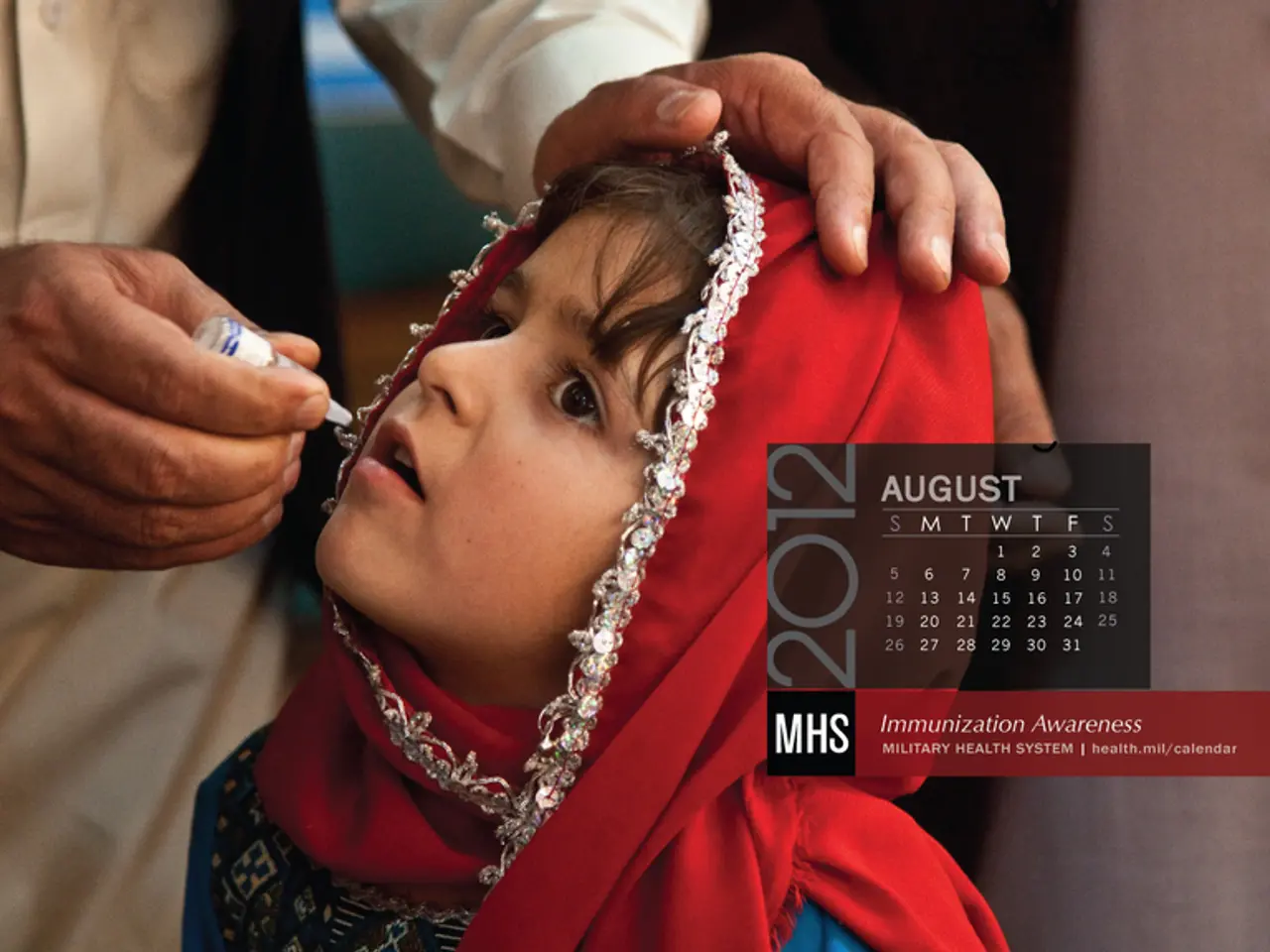Infant's First Twelve Months: Immunization Guide for Nigeria
In Nigeria, a comprehensive vaccination schedule has been established to protect infants from a wide range of potentially life-threatening diseases. This schedule aligns with the country's National Immunization Program and the World Health Organization's recommendations, adapted for local disease burden, including malaria.
The vaccination journey begins at birth with the BCG vaccine for tuberculosis and an oral polio vaccine (OPV) birth dose. At six weeks, infants receive the pentavalent vaccine, which protects against diphtheria, tetanus, pertussis (whooping cough), hepatitis B, and Haemophilus influenzae type b. This is followed by the administration of the rotavirus vaccine, pneumococcal conjugate vaccine (PCV), and oral polio vaccine (OPV) at ten weeks.
At fourteen weeks, the same vaccines from the previous rounds are administered. The DTP-HepB-Hib vaccine, a crucial component of the schedule, protects against several diseases, including diphtheria, tetanus, pertussis, hepatitis B, and Haemophilus influenzae type b.
The malaria vaccine roll-out began in late 2024, marking a significant step in child health protection alongside routine immunizations. The complete vaccination schedule includes five doses of the malaria vaccine, starting at five months and continuing through to 15 months (or later if delayed).
At nine months, the last set of vaccines are given, including measles vaccine and yellow fever vaccine. It is important to have a healthcare provider who is trained and experienced in administering vaccinations. Vaccinations need to be stored at the correct temperature and protected from light, heat, and freezing to ensure their effectiveness.
Before vaccinating, parents should inform the healthcare provider about any allergies or previous adverse reactions their baby may have had to vaccines. Proper storage and administration of vaccines is essential to ensure their effectiveness. Administering vaccines incorrectly can reduce their effectiveness or even cause harm to the baby.
Parents should ask the healthcare provider to explain the potential side effects of each vaccine. Common side effects may include redness, swelling, or tenderness at the injection site, mild fever, or fussiness. These side effects are usually mild and go away within a few days.
It is important to consider bringing someone with you to the appointment for support during the vaccination process. Vaccinations are crucial for protecting infants in their first year of life from infectious diseases such as measles, a highly contagious viral disease that can cause severe complications, including pneumonia, blindness, and even death. The pneumococcal conjugate vaccine protects against pneumococcal diseases, such as pneumonia, meningitis, and bacteremia.
Addressing common misconceptions surrounding vaccinations is crucial in promoting vaccine acceptance. Vaccines have been proven to be safe and effective, and the benefits far outweigh any potential risks. By following the recommended vaccination schedule, parents can ensure that their babies receive the necessary protection at the right time.
[1] World Health Organization. (2021). Vaccines and immunization in Nigeria. Retrieved from https://www.who.int/immunization/monitoring_surveillance/outbreaks/Nigeria/en/
[2] Nigeria Federal Ministry of Health. (2021). National Immunization Programme. Retrieved from https://nphcd.gov.ng/programmes/immunization-programme/
[4] Nigeria National Primary Health Care Development Agency. (2021). Malaria Vaccine Roll-out in Nigeria. Retrieved from https://nphcd.gov.ng/programmes/malaria-control-programme/malaria-vaccine-roll-out-in-nigeria/
Read also:
- Exploring the Strength of Minimally Digestible Diets: A Roadmap to Gastrointestinal Healing
- Secondhand Smoke: Understanding its Nature, Impact on Health, and Additional Facts
- Could a Secret Heart Rhythm Device Infection Be Causing Your Illness?
- Child Water-shift Ailment Identification and Treatment: Recognizing Symptoms and Steps to Take





